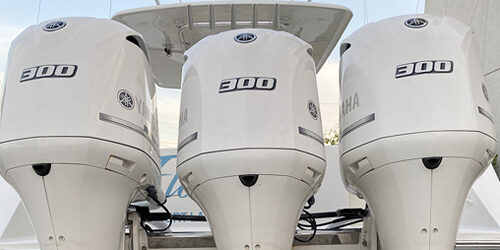OUTBOARD SERVICE SOUTH FLORIDA — Outboard powered boats are a very versatile option for those who want to enjoy many aspects of the water. Whether you’re fun fishing or for competition or just out there to enjoy the sandbar, an outboard could be a perfect fit for you and your family. With outboards, comes responsibility and in this article we will cover how, when, and why you should maintain your outboard engines.
Extend The Lifespan Of Motor
Regular outboard maintenance is important because just like any purchase, you’d like it to last as long as possible. Even though we use boats less than cars they still need to be regularly maintained in order to get the most out of your motor. Regular maintenance reduces deterioration and fixes minor problems before they become big problems. Unfortunately, saltwater and kicked-up sediments can cause parts of the engine to deteriorate over time regardless of how much you clean and maintain your engine. With harsh environments, comes a potential for stale motor oil which can damage prop shaft seals and allow water into your engine.
Tips After Every Trip
- Flush out the engine, after saltwater or freshwater trips.
- Start up the engine and let water pump work.
- While flushing motor make sure to check water pump for good flow. If flow is not strong, there may be debris stuck in the outflow tube, immediately shut down engine to prevent overheating / damage.
- Take engine cowling off and check for fuel or water leaks, if you find leaks, contact your boat mechanic ASAP.
- Wipe everything down and spray with an anti-corrosive like WD40 or Quick-lube. Be sure to lubricate all moving parts such as the shift, throttle cables, carburetor valves, etc.
- Replace the cowling and wipe it down. We recommend keeping a canvas or plastic cover on the engine in between trips.
- Always use fresh fuel. You should drain your fuel tanks before long storage.
Regular Maintenance
- Periodically check the fuel line for craks or worn spots.
- Make sure the fuel primer bulb is not cracked and is pliable.
- Make sure the fuel-line fittings seat properly and don’t leak.
- Check the clamps on the fuel line for rust or corrosion.
- Check the fuel tanks for damage and corrosion.
- Check the tank vent to make sure it aspirates properly.
- Check regularly for water in fuel.











